I've been working on getting this done for the past several months and finally received some part samples yesterday.
The forethought for this revolves around hydraulic roller FE's. I have customers that occasionally want higher rpm engines but they don't want to go with a solid roller because of the extra expense, maintenance, etc., and they don't want to go with a solid flat tappet because of camshaft break-in issues that occasionally plague us. Hydraulic rollers are an excellent choice for street engines since they are basically an "install-and-forget" scenario: no maintenance, no camshaft break-in, etc.
In years past, we have seen a "brick wall" on rpms when it comes to the hydraulic roller camshafts and this is because of several variables: camshaft lobe aggression, lifter choice,
oil choice, and valvetrain weight. If you use an overly aggressive camshaft lobe, then it's hard for the valvetrain and lifters to keep control of things. If you use something like a Morel lifter, then the lifter component tolerances are much tighter and the resulting
oil viscosity has to be eyeballed so that the lifters can operate the way they were intended to operate. If you use a heavy valvetrain assembly, i.e. 3/8" stem, large headed valves, steel retainers, adjustable rocker arms, etc., then you have a lot of unnecessary weight that the lifter plungers are having to deal with. Over the years, we have gone from seeing 5800-6000 rpm limits to 6200-6500 rpm limits and a little higher. We have been able to get to those milestone points with FEs because we have been "slimming" things down and finding component relationships that work. Less aggressive lobes are being used in correlation with higher-quality lifters, smaller stemmed valves, and the use of non-adjustable factory rocker arms. I have routinely seen rpms of over 6500 and I do believe that Blair has had a few engines where he has seen 7000 rpm with a hydraulic roller camshaft.
I feel that the rocker arm choice is a big player in this as it can either help or hurt the valvetrain weight. Adjustable rocker arms with large adjusters, jam nuts, etc., add unnecessary weight. Unnecessary weight can make it harder for the lifter to do its job. A lot of us have seen the results of using the non-adjustable factory rockers: in engine combinations that have usually lost control of the lifters at around 6000 rpm, the lighter rockers allow the peak horsepower rpms to creep up by several hundred rpm or more. Again, you have to look at the overall picture and choose a combination that works, but the rockers do play a large role.
However, there are constraints with the factory rockers. The shoe style rocker tip leaves an undesired wider pattern on the valve stem and in extreme situations where we're using very small stemmed valves, that can pose a problem without adding lash caps. The rockers themselves are not meant to carry large valve spring pressures or large valvetrain loads. It's not hard to find good rocker cores, or even very nicely rebuilt pieces from companies like Rocker Arms Unlimited, but again, their original strength and design capacities can be quickly overran.
With all of this in mind, I set out to see who could produce a moderately budgeted non-adjustable rocker arm that would be light, accurate, and could carry extreme loads and valve spring pressures. Over the last several months I have approached T&D, Manton, and a few others with this task. A few of the companies were eager to work with me but the pricing was just way out of the range for most builds. A few of the companies just flat-out told me that they weren't interested....
What I have arrived at is a business relationship with Harland Sharp. Their rocker arms carry a very high reputation across all engine families, but especially in the FE world. They have agreed to manufacture rocker arms exclusively for me that include all of the aforementioned goals and I received the first sample set yesterday. I will be offering these for sale soon, but not until I get some "seat time" with them on a current high-rpm hydraulic roller FE engine build. At first glance I'm very pleased with them and I know that, based on Harland Sharp's reputation, that they will be very high quality.
Some features:
*Bronze bushing fulcrum, with oiling passage to allow oiling from pushrods or from rocker shafts
*Lightweight aluminum body with full roller tip
*Hardened pushrod cup insert
*Will accept up to 700 lbs of spring pressure
*Uses readily available 5/16" ball/ball pushrods instead of having to rely on full custom 3/8" ball - 5/16" ball pushrods or 3/8" cup - 5/16" ball pushrods
*Works with factory diameter rocker shafts
*Same width as factory rockers to allow either use of factory stands or aftermarket billet stands
*Will work with spring spacers or solid spacers
*1.76:1 rocker arm ratio
The beauty of these rockers is that they are basically universal. They will work as a "performance upgrade" to factory pieces by using factory shafts, stands, and springs. They will also work as components of new systems, where they would be used in conjunction with new shafts, Precision
Oil Pump billet stands, Precision Oil Pump spacers, etc. They will work with hydraulic rollers, hydraulic flat tappets, and if careful consideration and measuring is taken in assembly, they can also be used with solid flat tappets and moderate solid roller camshafts. We have seen recent instances where Cup engines use non-adjustable rockers so that spring pressures can be reduced and the rockers are used in conjunction with careful pushrod length measurements and/or lash caps. There's no reason why this couldn't be completed with an FE solid flat tappet or solid roller camshaft to allow for lower valve spring pressures and lower maintenance intervals.
I have also discussed several options with Harland Sharp, including needle bearing fulcrums (would require larger diameter shafts) and lightening programs which would further reduce the weight of the rocker arm.
Overall, I'm very excited to get this going and will be doing some testing with them in the next several weeks. I need to get a few customer builds dyno'd and delivered, which will free up some time for me.
The pricing for these rockers will be $450 for a set of 16, ready to install on your existing engine or new engine build.
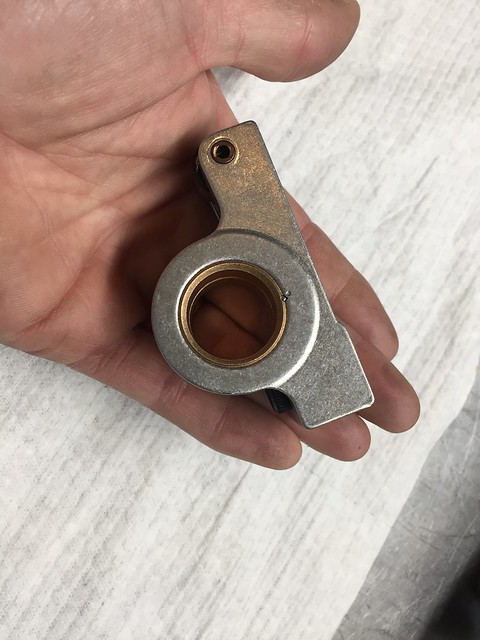
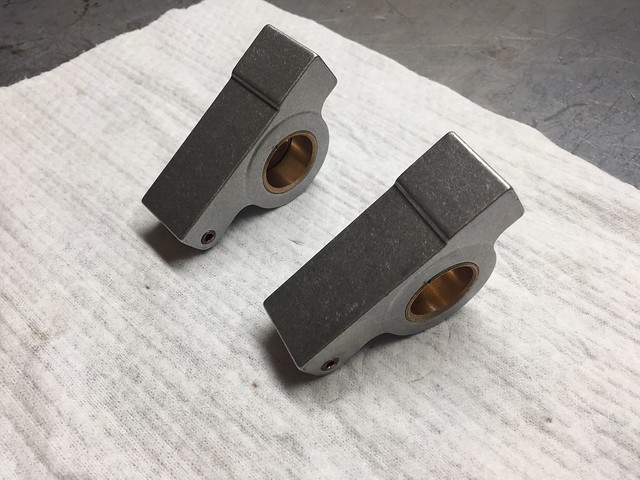
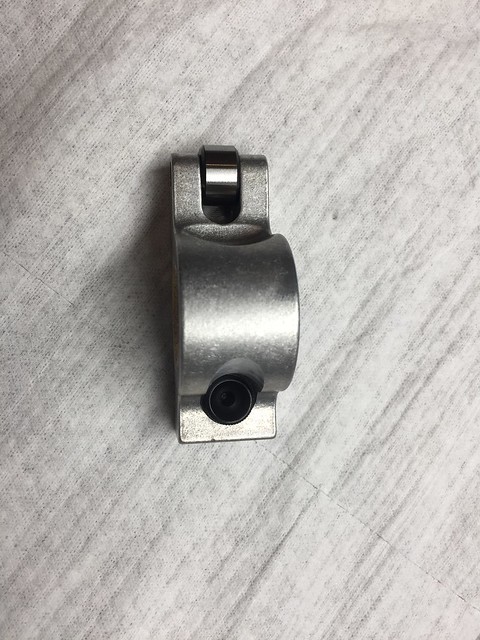


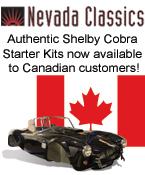

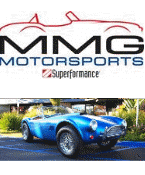

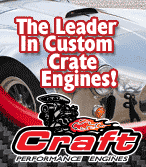
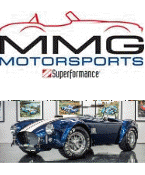
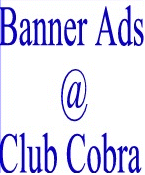
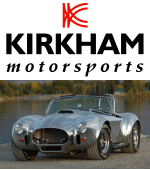

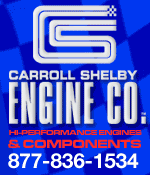
 4Likes
4Likes










 Linear Mode
Linear Mode



